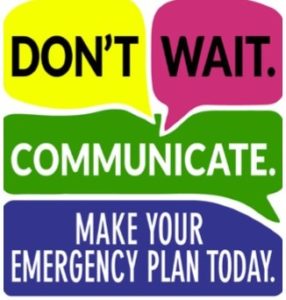On September 11, 2001, I was listening to the radio on my drive to work when the program was interrupted with the breaking news that the first plane had crashed into the first tower in New York. You know well the horrors of that day. The September 11th terrorist attacks are a day that we will never forget. I want to take a moment to honor the victims and their families and express my gratitude for the emergency personnel who risked their lives to save countless others.
I was working in an elementary and a middle school when the Twin Towers were destroyed and during the anthrax letter attacks that soon followed. I was also working in those two schools during the DC Sniper attacks. Now, in addition to standard fire drills, we were required to practice emergency evacuation and emergency shelter in place drills. Life had forever changed. Today’s students from elementary school through college must now also prepare for active shooters. Safety is always a priority. Violence and physical attacks aren’t the only addition to the kinds of emergencies that good managers prepare their employees for.
My natural behavior is to plan and prepare. My first aid kit is always stocked. I have always had an emergency kit in my care and my home. I am the woman with extra toilet paper, batteries, flashlights and water. After the terrorist attacks mentioned above, the Baltimore/Washington metropolitan area was plummeted with natural disasters which heightened my interest and knowledge in emergency preparedness. I remember…
- The east coast earthquake in 2011
- The derecho that led to Hurricane Sandy in 2012
- The polar vortex that caused record low temperatures in 2013
- Patrick’s Day snowstorm in 2014
- Warmest December on record in 2015
- Deadly flooding in 2016
- Tornado in 2017
- Deadly flooding in 2018
Know your region and the types of disasters most likely to have an impact on your business.
- Focus on prevention (sprinklers, fire extinguishers, building maintenance, etc.)
- Prepare an emergency plan for both natural and man-made disasters
- Develop an evacuation plan
- Identify internal and external emergency response resources that will provide assistance during a disaster or other emergency
- Establish a business continuity plan that will help keep your business operating as it responds and recovers from the effects of a disaster or emergency situation
- Train your team for emergencies (first aid, CPR, shelter in place, etc.)
- Identify which employees will be considered non-essential vs. essential personnel
- Identify plans for employees, customers, and vendors
- Create the necessary emergency kits (including seasonal needs)
- Keep an updated list of your emergency contacts
- Create a plan for conducting business if your facility is not accessible
- Protect your most important business record in fire, heat, and burglar resistant cabinets or safes or store them on the cloud
- Store back up copies of essential documents safely off-site
- Understand what your insurance covers

Nicki Sanders, MSW, is a travel and cupcake lover with a passion for self-discovery and career advancement. She has a strong background in developing and managing interns and successful internship programs. She is an accomplished manager, professor, coach, trainer, and group facilitator who has packaged her Master of Social Work degree and 20 years of diverse work experience into Packaged For Success Enterprises, a full-service training and professional development company.
© 2018 Copyright Protected. ALL RIGHTS ARE RESERVED.